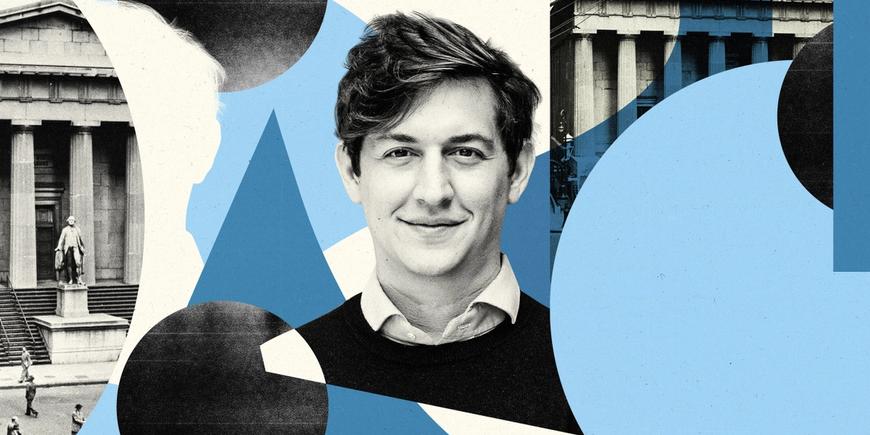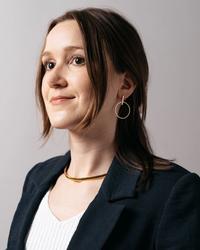As a16z Builds Its NYC Presence, David Haber Looks ‘Within the Cracks’
The founder-turned-investor shares what he’s learned over the course of his fintech career in New York and the trends he thinks will carry the industry into the future.

Focal FinTech: Presented by Primary and Rise, created by Barclays.
When David Haber announced he was joining Andreessen Horowitz at the beginning of this summer, our Twitter feed exploded. This long-time FinTech leader has built a fiercely loyal following over the course of his ten-plus years in the city, from working with Rory Riggs to jumping in venture at Spark Capital to founding Bond Street and joining Goldman Sachs. He has a trusted, 360-degree perspective on the space. So as we rounded up some of the year’s most notable FinTech founders in NYC, David was an essential context call. Here’s how he’s seen this landscape evolve, what he’s watching closely, and who he thinks will lead the way to what’s next.
The post-recession years in NYC
David graduated from “a little school outside of Boston,” but in 2009, even his Harvard alumni peers struggled to find jobs at the banks so many slightly older classmates went to. “And I think the benefit of not having those opportunities in that moment,” David says, “was that it forced people to take a step back and reflect on what they actually wanted to do.”
For him, that meant working with seasoned serial entrepreneur Rory Riggs and getting to know the tech and finance landscape. “It was four of us and him sitting around a table every day. It's like the world is imploding, the financial crisis is happening, and I had no background in finance at the time, but we had an unlimited book budget. He would pull people off Wall Street to explain what's happening in detail and really pushed us to debate him, to go read about, say, modern portfolio theory and come back and tell him what sounds real and what sounds like BS.”
“That was a very formative experience, early on in my entrepreneurial career,” David says, “I was this 19-year-old kid debating this super successful entrepreneur. It taught me to lean on the value of your ideas, and not your pedigree. I ended up working with him from 2009 to 2011, helping him start a small asset management business and would spend my nights and weekends running around the city with friends who were more directly in tech or who had gone into venture.”
David was an avid Fred Wilson blog reader and attendee of events like Hackers/Founders and the New York Tech Meetup. “It just felt very communal,” David says, “and in some ways the tech ecosystem still is, but certainly at the time, it was this cute little underdog industry in the shadows of these very large institutions. And I think it was a little bit of ‘us versus the world,’ and that's what made it really fun. A lot of that same connectivity and relationships exist and permeate the ecosystem today.”
FinTech’s evolution to today
“Seeing the tech ecosystem in the city grow from that point to what it is today is probably 20x in size and just the number of people in this space,” David says. “Part of that is just the law of large numbers. If it's growing super quickly, the bulk of the area under the curve is going to be in the more recent years. And part of it is that earlier NYC companies have gone public and spawned a new generation of founders. These folks are now looking for other hard problems to solve, and in many cases finding them in FinTech.”
Then there’s also the increasing acceptance and even prestige of startup career paths attracting talent from traditional institutions. “I think what you're seeing now, which has been different than the past, is the permeability of talent between the incumbent financial institutions and the startup fintech and crypto ecosystem,” David says. “You're seeing a lot of the talent flow into this space and bring a lot of the experience of operating large financial services businesses at scale to the early stage. I think that's going to be a real benefit for the next generation of FinTech companies and founders.”
Traditional players are becoming more conversant with this ecosystem
Big banks are working on keeping up, too. “The culture is shifting internally. Big banks understand what's happening in FinTech and that they need to react. Building those bridges, it's only going to continue.”
“Having been inside one of these firms”—Goldman Sachs—”there's a lot of opportunity to re-architect a lot of manual workflows and processes.” David says. “These firms have very, very large technology budgets but are not incredibly well-positioned to rebuild certain technology stacks from within. They’re also becoming more willing to buy or to rent from the broader technology ecosystem. So I think people in the FinTech community should look under the hood and try to identify some of these less sexy areas of workflow to build enterprise software and infrastructure in addition to doing things on the consumer side, because I think there's just generally a lot of opportunity there and a lot of ways to collaborate with some very large customers in your backyard.”
His advice to founders who might want to give it a try? “As with everything, it's building an authentic, non-transactional relationship even before you're trying to sell something,” David says, “just to understand their problems, workflows, and requirements. The banks are becoming more open to being more transparent about that than they probably have been previously. I think you'll see a lot more adoption of earlier-stage technologies. The culture at Goldman forever was building everything in house, and I think that's very much changed, especially since they brought in a new CIO and CTO who came from Amazon and Verizon and understand the value of AWS and other platforms.”
The a16z chapter
The announcement that David would be joining Andreessen Horowitz as a General Partner was just the beginning of a summer in which the firm quickly expanded its presence in New York City. “We're super excited to be here...it’s an opportunity to build out our presence and find more opportunities to collaborate with Primary and the broader FinTech entrepreneurial ecosystem,” says David.
“I've always believed that opportunities live between fields of expertise. And I think New York is really emblematic of that idea, in the sense that the best New York companies are often those that live at the intersections between technology and one of the large incumbent industries in the city. And frankly in many ways, I view FinTech much more as a horizontal than a vertical—the intersection of FinTech and healthcare or FinTech and enterprise software or FinTech and crypto. There are so many interesting things that live within the cracks and we're excited to explore all of these. So early days for us in New York, but very excited to be here.”

